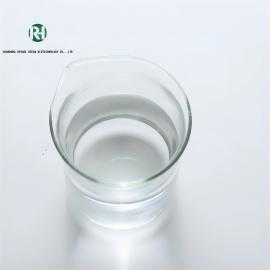-
Categories
-
Pharmaceutical Intermediates
-
Active Pharmaceutical Ingredients
-
Food Additives
- Industrial Coatings
- Agrochemicals
- Dyes and Pigments
- Surfactant
- Flavors and Fragrances
- Chemical Reagents
- Catalyst and Auxiliary
- Natural Products
- Inorganic Chemistry
-
Organic Chemistry
-
Biochemical Engineering
- Analytical Chemistry
- Cosmetic Ingredient
-
Pharmaceutical Intermediates
Promotion
ECHEMI Mall
Wholesale
Weekly Price
Exhibition
News
-
Trade Service
Statistics from 42 clinical trials show that three commonly used statins are best for lowering all "bad" cholesterol types and preventing cardiovascular disease in people with diabetes
This is the first study to show the effectiveness of statins, a group of drugs that can help people with diabetes lower a variety of bad cholesterol, in line with recently updated official guidelines from the National Institute for Health and Care Excellence (NICE).
Bad cholesterol in the blood, so-called non-HDL cholesterol (non-HDL-C), can build up on the walls of blood vessels, putting people at risk of blood clots
This meta-analysis, the first to assess the effectiveness of seven statins in lowering non-HDL-C levels in more than 20,000 adults, was published in the British Medical Journal
Scientists already know which of seven statins lowers low-density lipoprotein cholesterol (LDL-C)
Therefore, non-HDL-C is a stronger predictor of cardiovascular disease risk and is now the main target of cholesterol-lowering therapy to reduce cardiovascular disease risk
Rosuvastatin medium and high doses, simvastatin and atorvastatin high doses are the most effective treatments for diabetic patients using non-HDL-C as the primary indicator
In high-risk patients with major adverse cardiac events, high-dose atorvastatin was most effective in reducing non-HDL-C by approximately 2.
These findings firmly support and extend the April 2021 update of the NICE adult diabetes guidelines
NICE is the first in the UK to recommend non-HDL-C rather than LDL-C as a better way to measure the reduction in CVD risk when using cholesterol-lowering treatments
Lead author Dr Alexander Hawkinson, a health data scientist at the University of Manchester, said: "By 2025, 380 million people worldwide will have type 2 diabetes and they are at increased risk of developing cardiovascular disease
However, as NICE recommends, we recommend that clinicians should use all harmful types of cholesterol -- or non-HDL-C levels -- as a more robust measure of cardiovascular risk
Martin Rutter is Professor of Cardiometabolic Medicine at the University of Manchester and an Honorary Consultant Physician at the Centre for Diabetes, Endocrinology and Metabolism (part of MFT) at Manchester Royal Hospital
"These findings will provide useful guidance for clinicians in statin selection and dosing, and they will help support clinical judgment when balancing benefits and harms," said Professor Rutter







